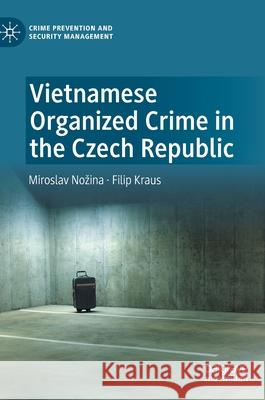Vietnamese Organized Crime in the Czech Republic » książka
topmenu
Vietnamese Organized Crime in the Czech Republic
ISBN-13: 9783030436124 / Angielski / Twarda / 2020 / 172 str.
Kategorie:
Kategorie BISAC:
Wydawca:
Palgrave MacMillan
Seria wydawnicza:
Język:
Angielski
ISBN-13:
9783030436124
Rok wydania:
2020
Wydanie:
2020
Numer serii:
000382191
Ilość stron:
172
Waga:
0.39 kg
Wymiary:
21.01 x 14.81 x 1.42
Oprawa:
Twarda
Wolumenów:
01
Dodatkowe informacje:
Bibliografia
Wydanie ilustrowane
Wydanie ilustrowane











